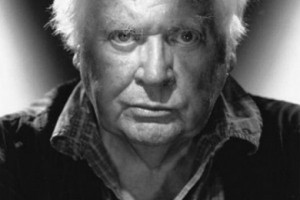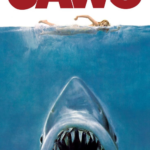 Ken Russell, the British filmmaker who successfully brought the Who’s rock opera “Tommy” to the big screen, died yesterday (November 27) in his sleep. At the time of his death he was beginning pre-production on a new film, a musical version of “Alice in Wonderland.”
Ken Russell, the British filmmaker who successfully brought the Who’s rock opera “Tommy” to the big screen, died yesterday (November 27) in his sleep. At the time of his death he was beginning pre-production on a new film, a musical version of “Alice in Wonderland.”
Seen as both flamboyant and controversial, Russell dreamed as a child of being a ballet dancer. But after a stint in the Royal Air Force and the Merchant Navy, and unsuccessful attempts at dancing and photography, he got a job working in television. After many successful years creating documentaries for the BBC he directed his first feature film, a 1963 comedy called “French Dressing.” The film was a rousing failure and it wasn’t until 1967 that he was allowed a second feature. “Billion Dollar Brain,” featuring Michael Caine, was well received and led to the film that would be considered his breakthrough.
In 1969 Russell released “Women In Love,” an adaptation of the D.H. Lawrence novel. The film starred Glenda Jackson, Oliver Reed and Alan Bates. The film gained notoriety for a nude wrestling scene and was among the first films to show male genitalia on screen. The film was nominated for eleven BAFTA awards as well as four Academy Awards, including a nomination for Russell. This would be his only Oscar nomination for direction. Glenda Jackson won the Best Actress Academy Award for her performance in the film.
As the 1970s began, Russell found himself edited by the studios he worked for. His 1971 release “The Devils” was so upsetting that Warner Brothers refused to release it without some cuts. The film featured Oliver Reed (a Russell regular) as a priest who defies a corrupt church and state. Most of the brouhaha over the film came from the scenes featuring sexuality among nuns. Despite, or in spite of, the outrage the film led the British box office for eight straight weeks. In 1975 he released his vision of the Who’s “Tommy.” Featuring Ann Margaret, Jack Nicholson, Roger Daltrey and Elton John, the film earned Margaret an Academy Award nomination for Best Actress. He teamed up with Daltrey for his next project, “Lisztomania,” He ended the 70’s with the biopic “Valentino.”
In 1980 Russell collaborated with writer Paddy Chayefsky for the film adaptation of Chayefsky’s novel, “Altered States.” Starring William Hurt, the film is better known for the many on-set arguments between director and writer. Blaming his many quarrels with Chayefsky for “blacklisting” him in Hollywood, Russell made one more film in America, the very kinky “Crimes of Passion” with Kathleen Turner and Anthony Perkins. Returning to England he directed such period films as “Gothic,” with Gabrielle Byrne and “The Lair of the White Worm.”
In 1990 Russell took a job in front of the camera, appearing in a pivotal role opposite Sean Connery, Michelle Pfeiffer and Roy Scheider in “The Russia House.” His last significant film as a director was the 1991 film “Whore,” which starred Theresa Russell (no relation). Slapped with an NC 17 rating, the film could not be advertised on television nor could posters be displayed. The studio re-titled the film, “If You Can’t Say It, Just See It.” Russell was vocally upset at the film’s rating, noting that the same year’s “Pretty Woman” was given an “R” rating, noting that his film dealt with the hardships of prostitution while the Julia Roberts film just glamorized the profession.
An accomplished author, Russell wrote six novels along with several books on filmmaking. In 1989 he released his autobiography.

